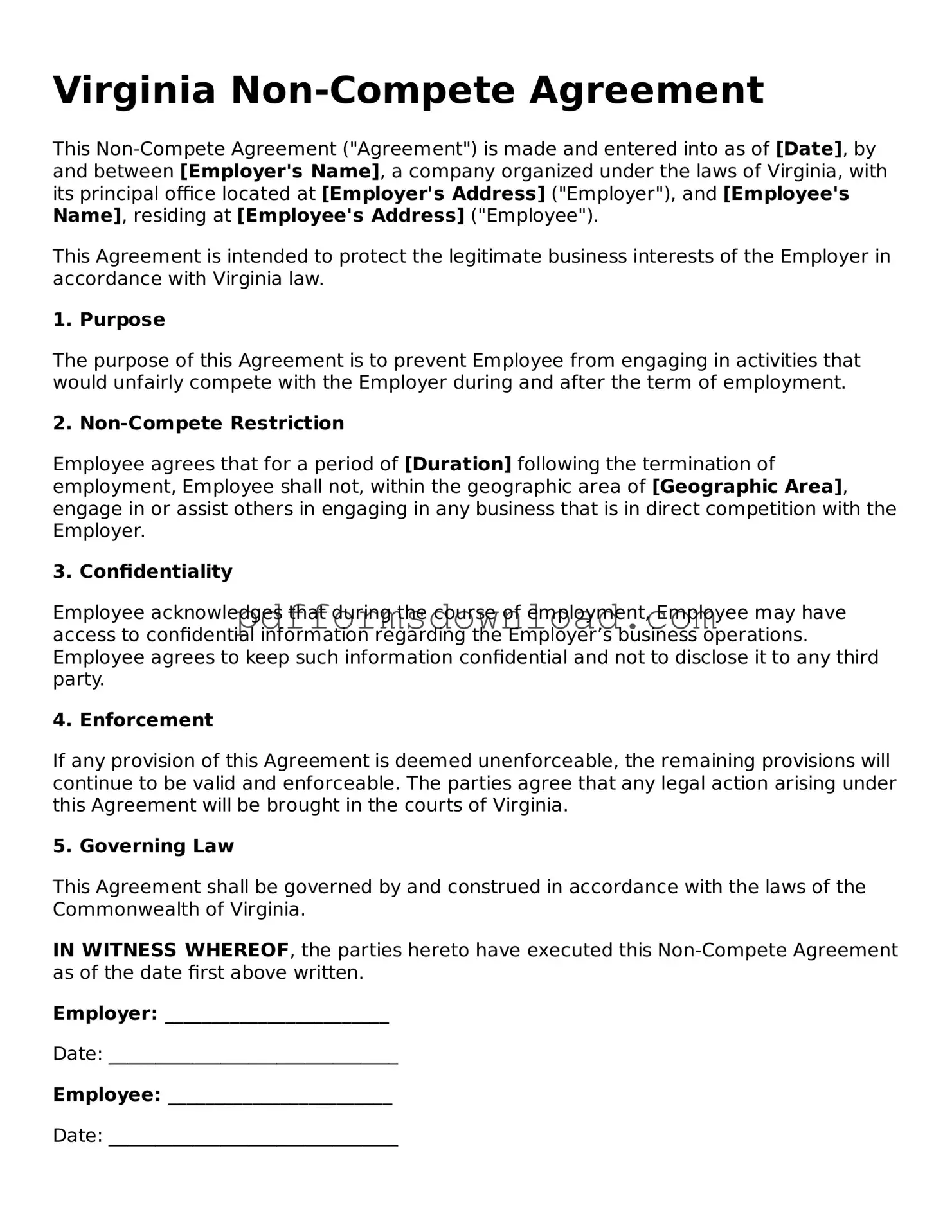Printable Virginia Non-compete Agreement Form
A Virginia Non-compete Agreement is a legal document that restricts an employee from working for competitors or starting a similar business within a specified timeframe and geographic area after leaving a job. This form aims to protect an employer's business interests while balancing the rights of employees. To ensure you understand the implications of this agreement, consider filling out the form by clicking the button below.
Make This Document Now

Printable Virginia Non-compete Agreement Form
Make This Document Now

Make This Document Now
or
Free PDF File
Your form is almost ready
Complete your Non-compete Agreement online — edit, save, and download easily.